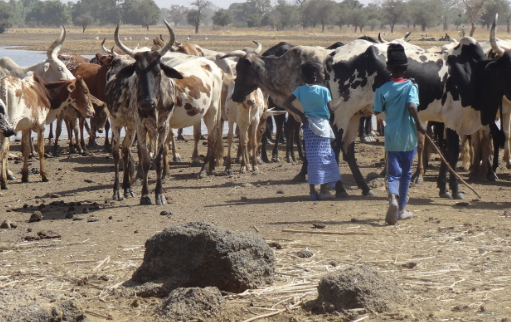LAST week, the Kwara state government took a decision to open new grazing reserves, to stem the growing patterns of conflict between nomadic herdsmen and sedentary farming communities. The decision came in the wake of recent clashes in some parts of the state, between farmers and nomadic herdsmen. These patterns of clashes have become especially frequent in recent years in many parts of central Nigeria and even as far afield as the South.
In places like Plateau, Nasarawa, Kaduna and Benue states and even the satellite towns of the FCT, there have been several clashes between these groups. A major element of these clashes, has been the use of modern sophisticated weapons, leading to the killing of hundreds of people. Old relationships between peoples from these groups have soured. As a Fullo, I know of the old joking relationships between FulBe and Tiv people in Benue; these relationships have broken down in areas where there have been constant fighting.
Many elite groups have built careers upon the breakdown in relationships that have ensued, while many in the media have reported these clashes, often with biased twists that consolidate hate and prejudice, but doing little to enhance the understanding that can aid practical solutions beneficial to groups in conflict and the country in general. But at the root of this serious crisis, include changing patterns of climate leading to the relentless expansion of the desert into the North of Nigeria.
A study from the University of Nigeria Nsukka, says that the Sahara is advancing by as much as 15Km per year; and in the past 60 years, the desert has claimed 351, 000 square miles. The consequence is the endangering of 28 million people and about 58millionn livestock. As herdsmen move into the central plateau of Nigeria and further into the rain forest of the south, with excellent conditions for cattle grazing, they come into contact with farmer communities, whose population have also been increasing.
They alienate ever-greater acres of land for agriculture to feed growing populations. Cattle herds enter into these farms, especially with the blurring, if not complete erasure of old cattle routes and grazing reserves. The result has been been the repeated pattern of tragic killings and reprisals, which has cost so much in lives of people on all sides. The growth of religious militancy and the insurgency in Northern Nigeria have also complicated the very difficult situation.
Farmers and herdsmen
There is no gainsaying the fact that both groups, farmers and herdsmen, play a vital role in the economic well being of the country. It is poignant that agriculture as a whole contributes 40% of the country’s GDP. This economic reality must therefore be an urgent reason to find very enlightened ways to resolve these increasingly complicated clashes.
There are very legitimate needs on all sides which the Nigerian state must find means and ways of meeting in the interest of inter-community harmony. The killings and displacements of thousands of people from their areas of abode and livelihood can only deepen the resentment and anger which continue to fuel the crises. Meanwhile, the political elite makes perfunctory gestures which do not get to the root of the complicated problem, with its multi-faceted dimensions.
There are even cynical efforts to manipulate these tensions to score cheap political points. A related point is the profiling of nomadic groups, especially in the media, by journalists who come from farming backgrounds and therefore reflect the prejudices of their origins against nomadic groups. These prejudicial reportages and commentaries make a thorough understanding of the salient issues in the nomad-farmer conflict patterns around Nigeria, very difficult. In the long run, it is the country that suffers. But we cannot allow these patterns of conflict to continue forever.


